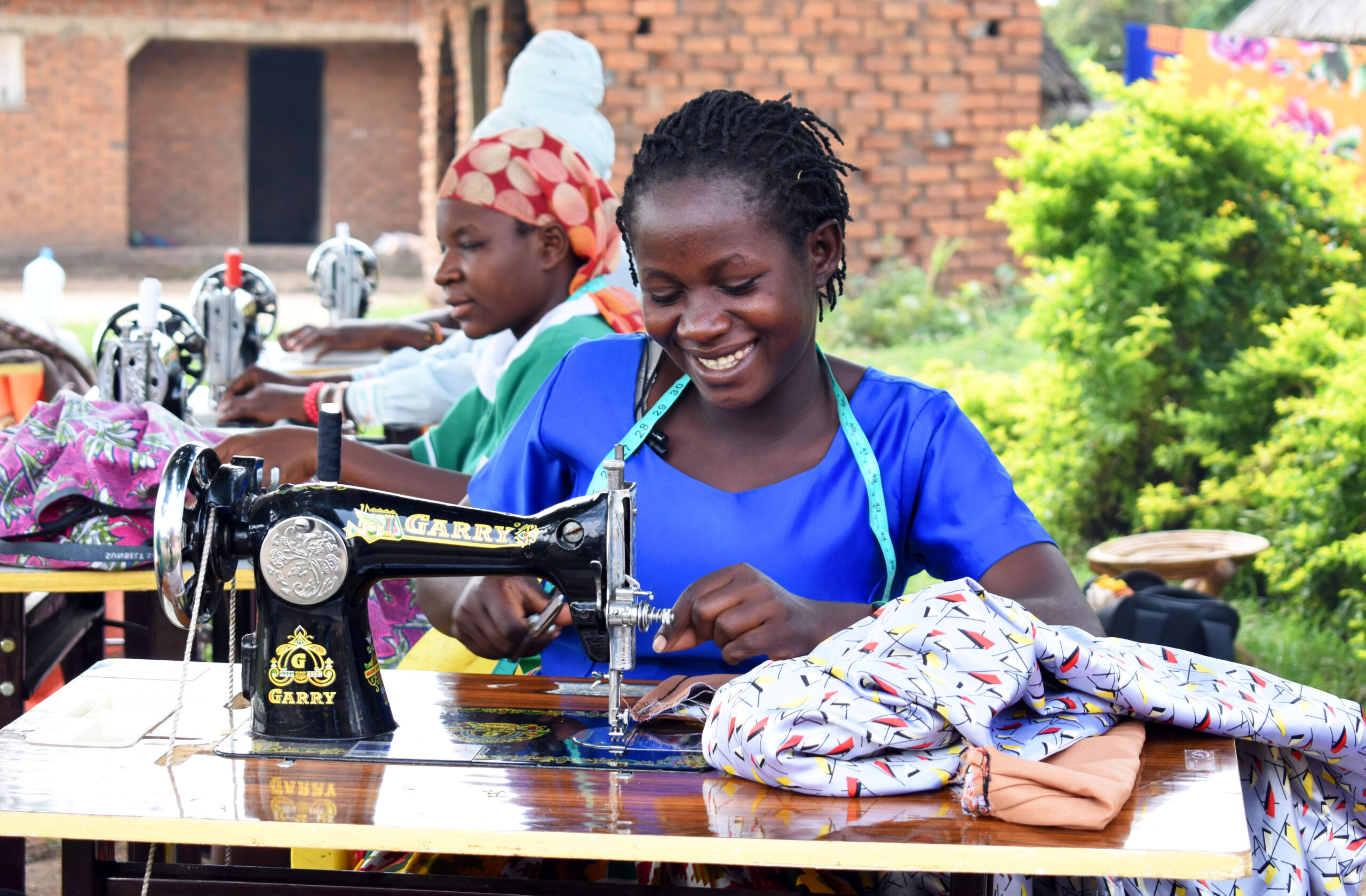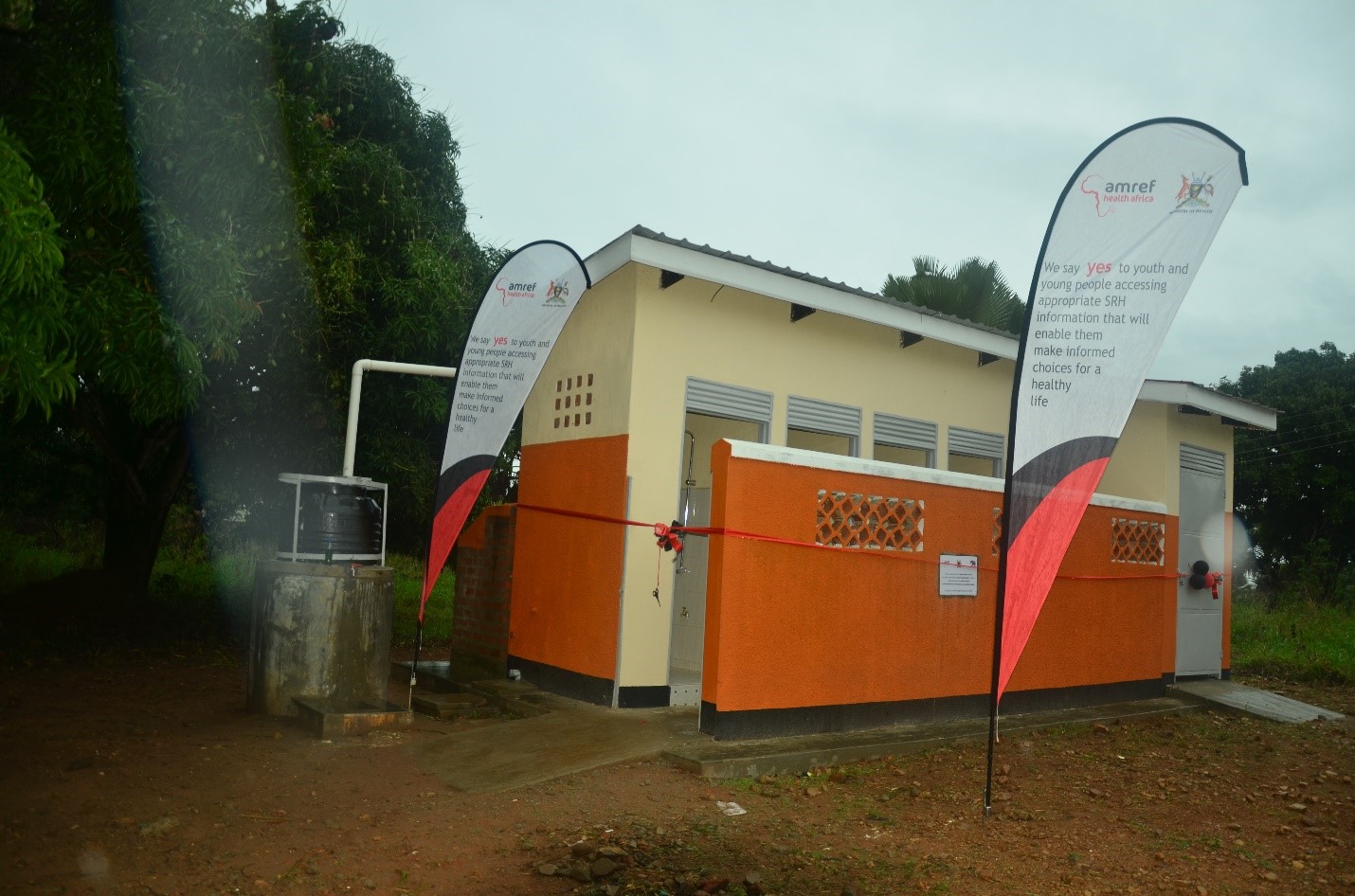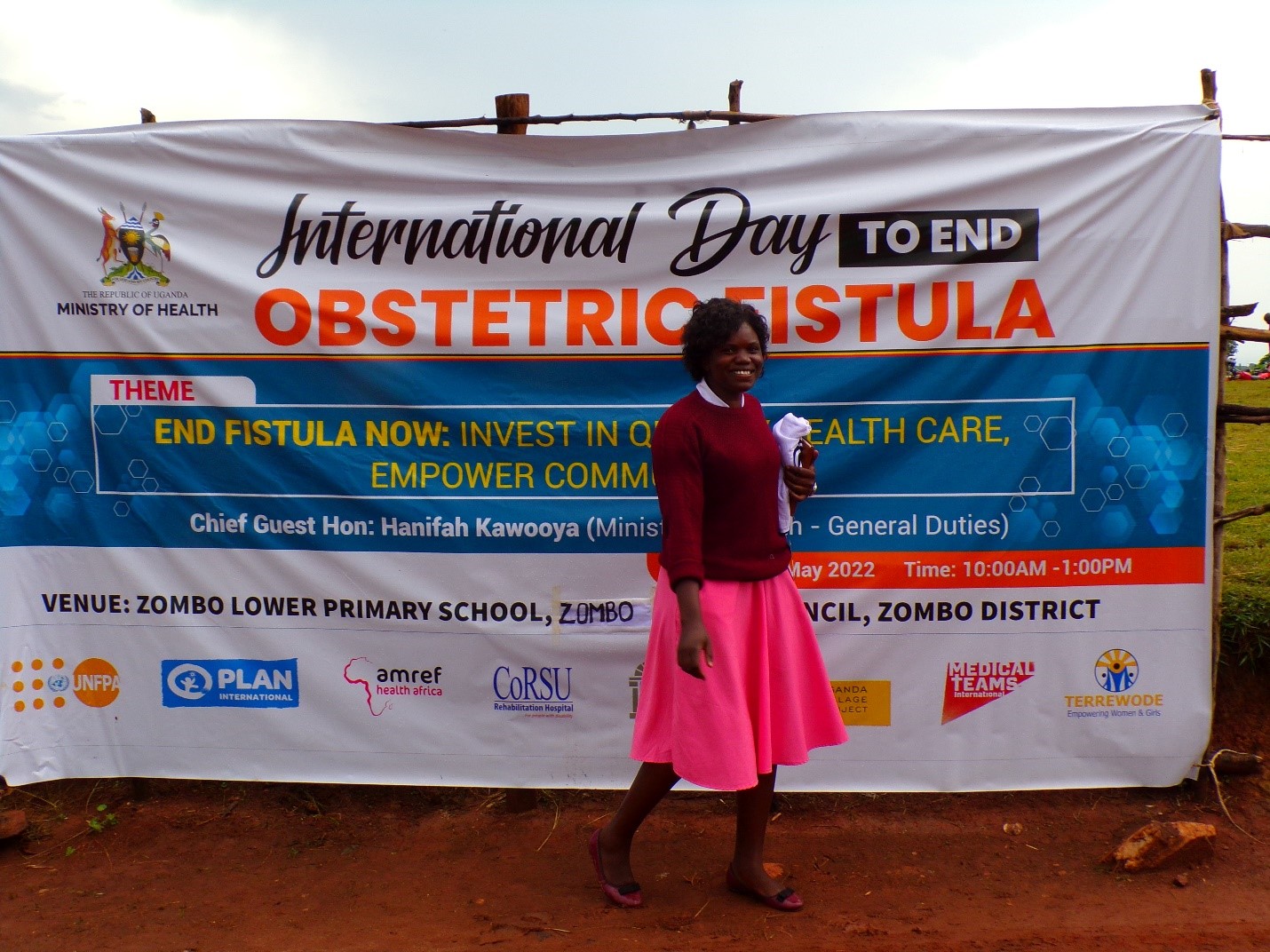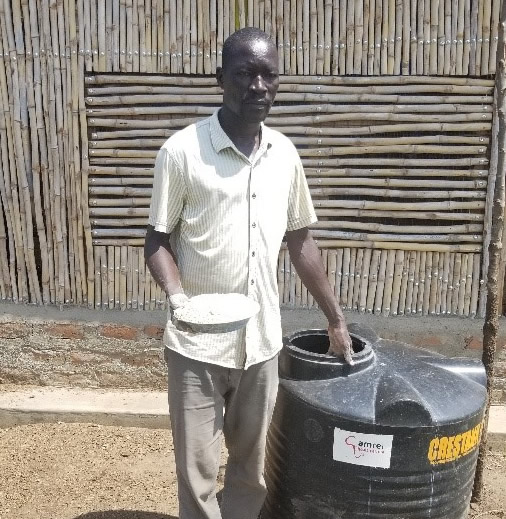Lamunu Grace: Amref supported water, sanitation and hygiene initiatives transform people’s lives in Luyaguma village, Lamogi sub county
Tuesday, 15 February, 2022

Lamunu Grace, 48 years old, is not only a resident of Luyaguma village but she is also the treasurer of her village Water User Committee. She is an active community member involved in the implementation of the Piwa Maleng Project in her community. She was happy to share her experience on how the project has transformed people’s lives through improved access to safe water, sanitation. and hygiene education.
“In Luyaguma village, Amref under the Piwa Maleng project rehabilitated our village borehole, this has saved us the burden of crossing the main road to go down the swamp to collect water from a protected spring,” says Lamunu.
In Lamunu’s community, women generally shoulder the burden of collecting, so having a nearby water source means a lot for her. This clearly explains why she volunteered to be on the village Water Users’ Committee as treasurer, a role where she oversees keeping collected water users’ fee for operation. And maintenance of the village borehole.
“As members of the Water Users Committee, we meet twice a month to discuss any issues pertaining to our water source. Every household that collects water from this source contributes 1000 shillings monthly towards the operation and maintenance fund of the borehole.” says Lamunu.
When the water source breaks down, the community always has some money set aside to repair it. They call the hand pump mechanic to carry out the borehole inspection to establish how much the repairs will cost. With Amref support, members of the Water Users Committee (WUCs) were trained on their roles and responsibilities, financial management, book keeping, Village Loan and Saving Association, safe water chain, operation and maintenance of their water sources and COVID 19 prevention guidelines. The WUC mobilises village members to fence their water sources as a way of protecting them from livestock damages, contamination and vandalism.
Lamunu however, points out that after the rehabilitation by Amref, the borehole has not broken down. The only time they made any repairs was when they were repairing the connecting rod. This could however be due to a change in technology from use of galvanised iron pipes to stainless steel or PVC pipes which are durable and do not rust.
Value of the bore in the community
Everyone in Luyaguma village is pleased that their village borehole is reliable, children no longer cross the main busy road going to collect water from the swamp. Safe water from the rehabilitated borehole is nearby with the community, even older people easily collect and carry water back home.
“During rainy seasons water from the spring well would get contaminated with run off rainwater but water from the borehole is safe for human consumption and does not stain clothes and utensil. We have easy access to enough safe water for drinking, cooking food and washing. We no longer waste our precious time in search for water and the most important this we are health,” says Lamunu.
Sanitation improvement
Having a nearby water source within our village has greatly contributed to improvement in sanitation and good hygiene practices in Luyaguma village. There is easy access to enough water for hand washing especially after using latrine and before handling food. And in this COVID 19 pandemic era, community members have been encouraged to frequently wash their hands with water and soap, this being the first line of defence in stopping the spread of COVID 19.
To improve sanitation and hygiene in the Luyaguma village and in the entire Lamogi sub county, the Piwa Maleng Project employed home improvement campaigns in all six parishes of Lamogi sub county. With this approach, households competed to become the ‘ideal homestead’ by implementing agreed upon hygiene and sanitation measures. This has resulted in a significant increase in latrine coverage and general improvement good hygiene practise in the entire Lamogi sub county. All project activities were integrated with hygiene education to sensitise the community members on COVID 19 prevention practices.
Lamunu continues to explain that Amref supported the Luyaguma village health teams to move around the village, teaching residents the value of ending open defecation and the use of latrines, instead of going to the bush. In addition, village residents were taught how to construct utensils drying racks, previously they were drying their washed dishes on the ground where chicken and other animals at home would eat from them. Keeping drinking water safe without contamination, the use of two cups; one for scooping drinking water from the pot and the other for drinking was introduced in the community.
“Our village has 49 households all of them have functional tippy taps at home and only two households currently don’t have latrines because their latrines are full, but they are in the process of constructing new ones,” says Lamunu.
While highlighting the great strides made in the village to improve sanitation and hygiene status. “Everyone in my home frequently wash their hands with water and soap from the tippy tap, we don’t want to suffer from COVID 19.”
Lamunu further explained. At the village borehole, there is a tippy tap so that everyone who comes to collect water washes their hands first as a measure to stop the spread of COVID 19.
Amref Health Africa teams up with African communities to create lasting health change.




